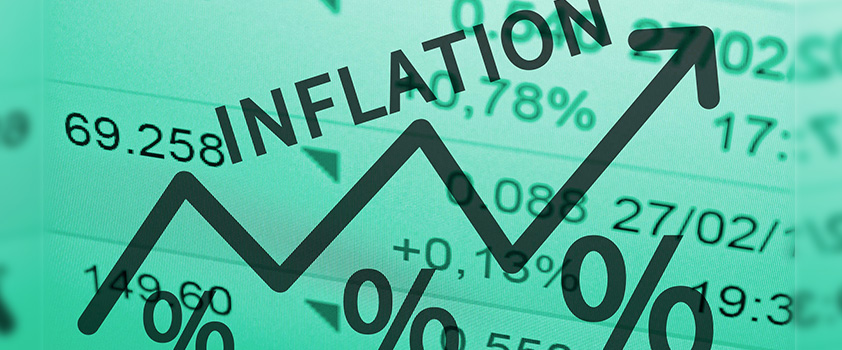Since the 2008 financial crisis, the global economy has been rebounding with inflation hovering around all-time lows in many parts of the world before the onset of the coronavirus pandemic. It’s a situation consumers were getting accustomed to and perhaps comfortable with. But now the ‘honeymoon period’ appears to be over, induced by yet another crisis with no apparent end in sight. Prices are again on the rise and just about everyone is starting to feel the economic pinch. This, as consumer demand continues to outstrip supply. In August point to point inflation breached the upper limit of the Bank of Jamaica’s 4-6 percent target, coming in at 6.1% the highest 12 month movement since June last year. No surprises there since inflationary pressures which have persisted since the start of the year have not eased. To make matters worse, jobs are scarce and those who do have a job are forced to work reduced hours at lower rates. In essence, income is shrinking while living expenses are rising – a recipe for disaster.
At the heart of the problem is the increasing cost for shipping. In short, companies and merchants are paying significantly more to move the goods we consume. In some instances shipping costs have skyrocketed by more than 400 percent since January 2021. As a result, in more cases than not, some of that cost is being passed on to consumers. But it’s not only happening in Jamaica. In the United Kingdom for example, consumer prices surged by 3.2% in the 12 months to August, the biggest increase on UK record. It’s no wonder why shipping companies are thriving, with the world’s largest container shipping group, Maersk, forecasting record profit despite the global supply chain mayhem.
Over in the United States inflation appears to be easing but the lingering supply chain issues could intensify challenges for critical components like computer chips. The US inflation rate over the past year dipped to 5.3 percent from 5.4 percent. It was the first decline since October last year. But some experts argue that the relaxation may be short lived, noting that other categories which have been largely subdued could see higher prices in the coming months. For example, medical costs have remained low throughout the pandemic, an occurrence which is not likely to last. Similarly, the cost of housing which is about 40 percent of US inflation is expected to soar.
But amid the crisis there are beneficial opportunities. For example, certain investment areas like real estate, stocks, bonds and commodities may be wise financial moves now. Inflation will likely increase the resale value of a property. It could also benefit the investor by way of rent income which will also increase as inflation soars. With regards to stocks and bonds it may not be easy to see how investors can benefit since inflation is not good for fixed-income instruments and stocks generally keep pace with inflation. However, strategic moves like purchasing inflation indexed bonds can help. In these instances, interest payments rises because the interest paid is based on the base value. Similarly, investors should focus on buying stocks in companies where the rising cost of the product can be easily passed on to consumers. In the same vein, tangible assets are a good bet during inflationary periods. For example, investing in agricultural produce or oil will likely deliver significant dividends.
As inflation force consumers to revisit how they can get the most value for their buck banks are also looking to cash in. Notably, banks are uniquely positioned to benefit from an environment where inflation is on the rise. That’s because inflation is usually followed by an interest rate increase. In fact, the BOJ has already signalled that it is likely to increase its indicative interest rate from a historic low of 0.50 percent at the next meeting of the monetary policy committee. In the interim, consumers around the world continues to buckle under inflationary pressures after decades of relatively low consumer prices.

